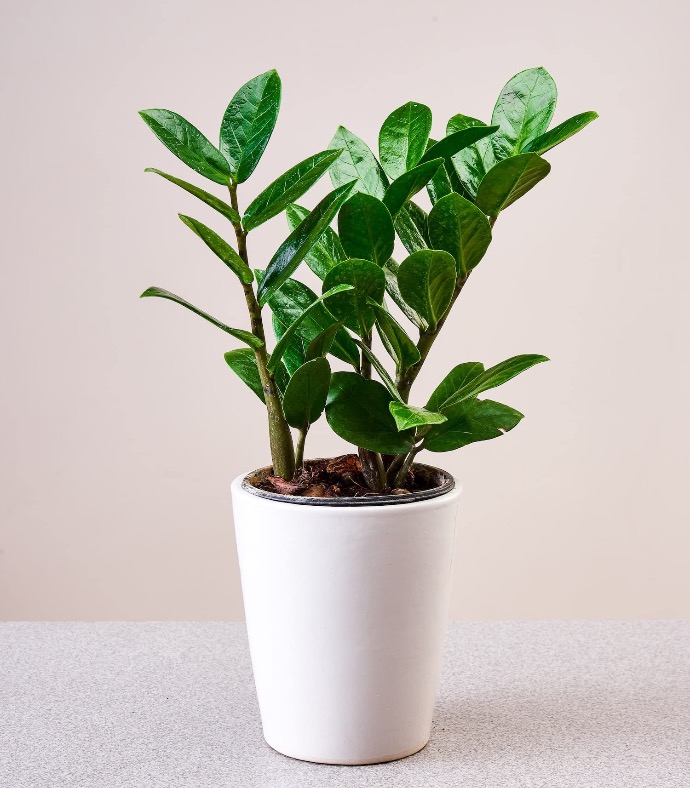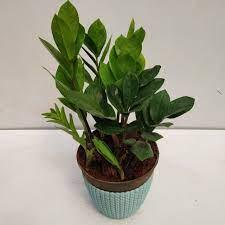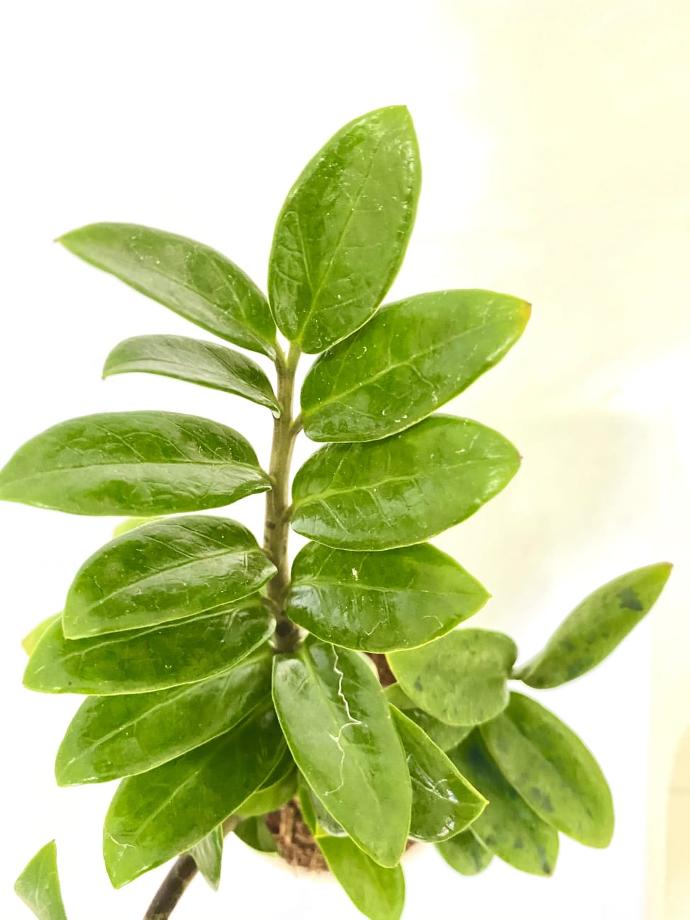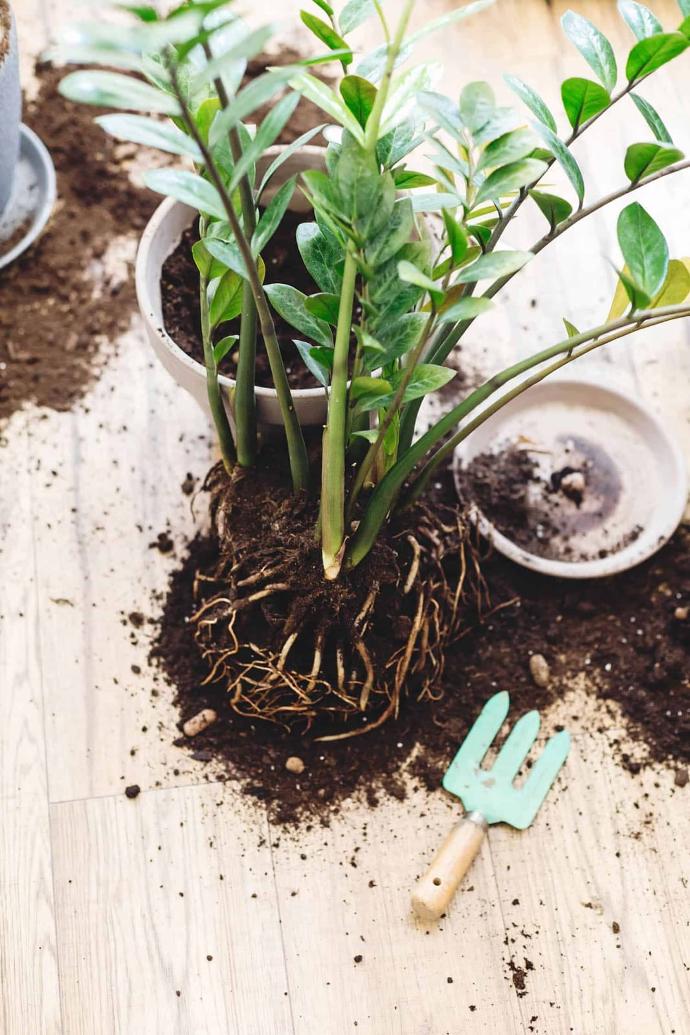Zamia Green Plant
Zamia Green, also known as Coontie Palm or Zamia furfuracea, is an outdoor cycad plant. Plant in well-draining soil with partial to full shade exposure. Water consistently and fertilize during the growing season for optimal growth. Pruning involves removing old or damaged fronds. Protect from strong winds.
Habit
Perennial
Height
0.5-1 meter
Growth
slow
Soil
Well-drained, sandy soil
Shade
Full Sun to partial shade
Moisture
Moist
Edible
No
Medicinal
No
Origin
Partial shade
Climatic Condition
Tropical, humid
Temperature (°)
25-30
Humidity (%)
60-80
Potting media
Sandy or loamy soil
Fertilizers
Potassium-rich
Watering
Low
Plant Weight
500-700 grams
Flowering Time
Spring to Summer
Soil Ph level
6.0-7.5
Water Ph level
6.0-6.5
Soil EC
0.2-0.3 mS/cm
Yield Per Plant
ornamental
NPK ratio
10:10:10
life Span
5-10 years
Health Benefits
Used as ornamental, improves air quality, supports relaxation
Suggested Grow Media or Potting Mix ?
50% cactus mix, 30% perlite, 20% sand
Suggested Fertigation/Fertilizers
Fertilize every 4-6 weeks with a cactus-specific fertilizer.
Common Diseases and Remedies
Root Rot , Leaf Spot
Sudden wilting, loss of vigour, poor growth, and yellowing.
Irrigation should be done regularly.
HEALTH BENEFITS
Toxic: Contains cycasin, which is harmful if ingested.
· While not known for direct health benefits, some species are studied for medicinal compounds.
What Is An Zamia Green Tree?
Zamia is a family of cycads, old plants that have been around for a long period of time and are frequently alluded to as "living fossils." Zamia green, otherwise called Zamia furfuracea or cardboard palm, is a famous animal groups inside this variety. It's local to Mexico and flourishes in warm, heat and humidities.

What Are The Different Types Of Zamia Plants?
1. Zamia furfuracea (Cardboard Palm)
This species is maybe the most notable and normally developed kind of Zamia. It includes solid, palm-like leaves with a rugged surface, subsequently the epithet "cardboard palm."
2. Zamia integrifolia (Florida Arrowroot)
Local to Florida and the southeastern US, this species has stretched, shiny green leaves and delivers alluring red cones.
3. Zamia pseudoparasitic
Found in Brazil, this species is known for its striking blue-green foliage and is famous among authorities for its extraordinary appearance.
4. Zamia skinneri
Local to Mexico, this species has radiant green leaves with serrated edges and delivers cones with dazzling red seeds.
5. Zamia pygmaea
As the name recommends, this species is more modest in height contrasted with others in the sort. It has minimized development and is appropriate for little spaces or holder gardens.

How to Care Zamia Plant ?
1. Location
Zamia green plants are local to warm, tropical districts, basically tracked down in Mexico and portions of Focal America. They flourish in areas with a subtropical to heat and humidity, described by warm temperatures, high stickiness, and moderate to high precipitation.
2. Sunshine
Zamia green plants lean toward brilliant, circuitous daylight. They can endure some immediate daylight, particularly toward the beginning of the day or late evening, however extreme, delayed daylight can singe their leaves. Right at home, Zamia plants frequently develop under the shelter of taller trees, where they get separated daylight.
3. Soil
Zamia green plants flourish in well-depleting soil that is wealthy in natural matter. A decent preparing blend for Zamia plants ought to have a fair pH level, regularly somewhere in the range of 5.5 and 6.5, to advance ideal supplement retention.
4. Hydration
Water the plant completely when the top inch of the dirt feels dry to the touch. Permit overabundance water to empty openly out of the lower part of the pot to forestall waterlogging, which can prompt root decay.
5. Nourishment
Utilize a reasonable, slow-discharge manure formed for indoor plants or cycads. Apply the manure as per the producer's guidelines, normally every 2-3 months during the developing season (spring and summer). Abstain from over-preparing, as this can prompt compost consume or supplement lopsided characteristics.

6.Issues
While Zamia green plants are by and large versatile and low-upkeep, they can in any case confront a few normal issues that might influence their wellbeing and appearance. The following are a couple intense
What are the Benefits of Zamia Plant ?
Like many other houseplants, Zamia green plants can help improve indoor air quality by filtering out pollutants and toxins. They absorb carbon dioxide and release oxygen during photosynthesis, contributing to a cleaner and healthier indoor environment. Zamia green plants are relatively low-maintenance and can thrive in a variety of conditions. They are drought tolerant once established and require minimal watering and fertilization, making them ideal for busy or novice gardeners.

FAQs About Growing Zamia
1. how to maintain zamia green plant ?
Place the Zamia green plant in a location with bright, indirect sunlight. Avoid direct sunlight, as it can scorch the leaves. If growing indoors, place near a south or west-facing window where it can receive plenty of light throughout the day.
2. what are the uses of zamia green plant ?
Zamia green plants are popular choices for landscaping projects in tropical and subtropical regions. They can be planted in gardens, parks, and public spaces to add a touch of lush greenery and tropical flair to the landscape.
3. Can i grow zamia green plant indoor ?
Place the Zamia green plant near a window where it can receive bright, indirect sunlight. South or west-facing windows are usually ideal, as they provide the most light. If natural light is limited, supplement with artificial grow lights to ensure the plant receives adequate light.
4. which pot is best for growing zamia green plant ?
Ensure that the pot has drainage holes at the bottom to allow excess water to escape freely. Zamia plants are susceptible to root rot if their roots sit in waterlogged soil, so proper drainage is crucial for their health and vitality.
5. where can i shop for zamia green plant ?
Local nurseries and garden centers often carry a variety of indoor and outdoor plants, including Zamia green plants. Visit your nearest nursery or garden center to see if they have Zamia plants available for purchase.

